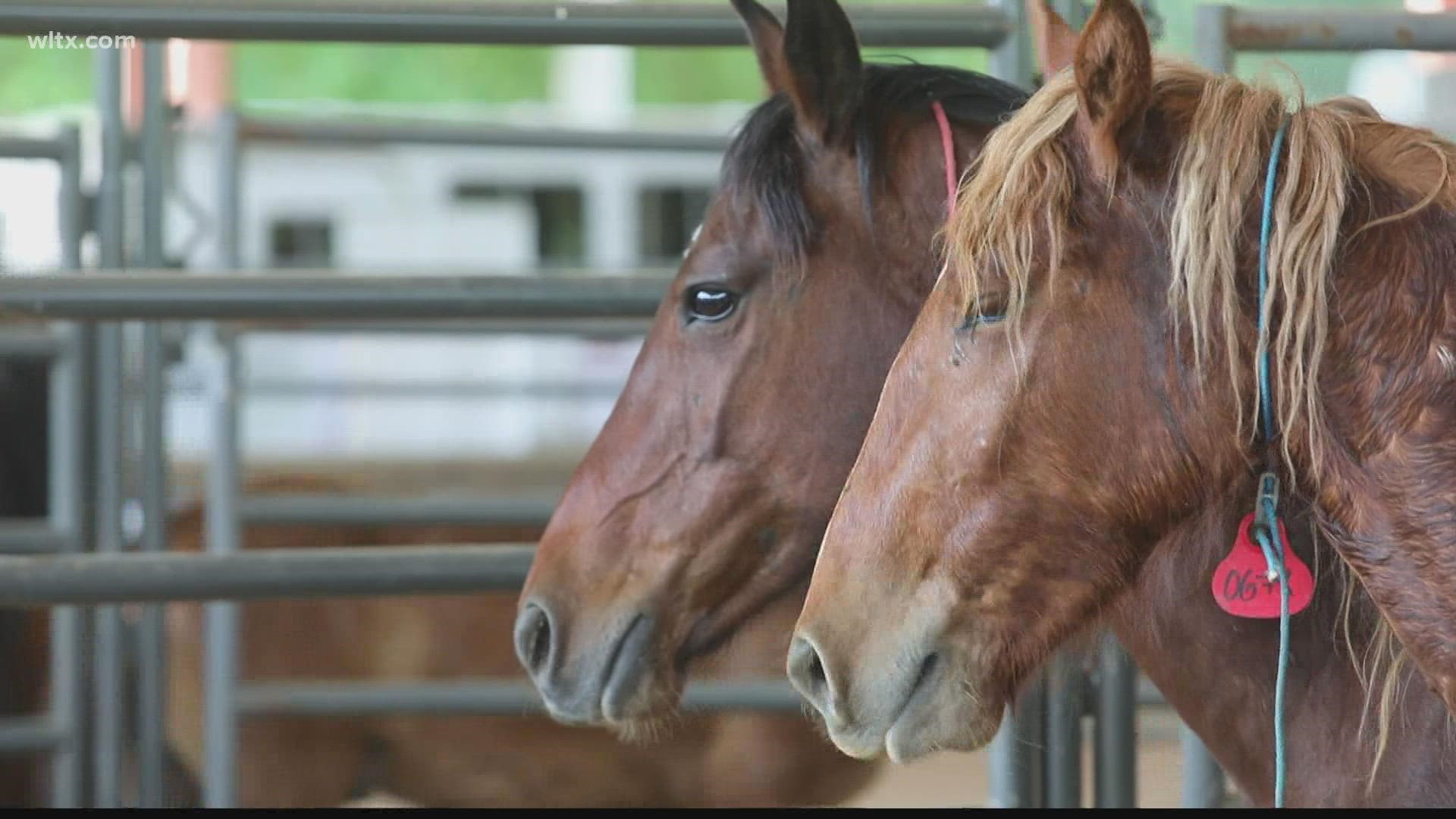SOUTH CONGAREE, S.C. — Rebecca Watson has loved horses all her life.
She thinks she got it from her dad.
Out in Chesterfield, where her family has a small farm, father and daughter are fans of camping out and trail rides.
Which is why, when her dad's 15-year-old horse died unexpectedly, he was heart broken. Like any good daughter, she knew she had to do something.
She went online and adopted a wild mustang for him.
It's called a wild horse and burro placement event.
The federal government holds auctions and adoption events for mustangs and burros each year in every state to help control their population.
In South Carolina, they hold the event every other year. This year, it's in South Congaree, but next year it could be in the Upstate or the Lowcountry.
Currently, there are over 80,000 free-roaming horses on nearly 28 million acres of public lands across about ten western states.
With no natural predators, their numbers are growing, about 15-20% each year, according to the U.S. Bureau of Land Management (BLM), which does fertility control to help slow the numbers.
Another way to keep the population down is to adopt out the horses and burros to the general public.
The agency holds about 50,000 mustangs and burros in off-range corrals and pastures all over the country as they await adoptions. That's how some 80 wild mustangs and burros found their way to a corral in South Congaree.
Eighteen horses were adopted online before the event even began, two of them destined for Chesterfield and greener pastures on the Watsons' farm.
Watson wanted to adopt a horse for her dad after his horse of 15 years passed away unexpectedly. It is hard for her to control her tears as she talks about what horses mean to her family. " I just really want a horse that he can bond with again."
Sumter 11-year-year old Gracie Beiger was at the arena Friday with her mom to adopt a horse. "I adopted a white mustang," Gracie said. "I want to use him for endurance and pole bending."
To participate in these adoptions you can either show up in person to the event or you can go online to see the horses that are coming to your area and purchase them.
On Saturday, the adoption event will take place from 8 a.m. to 1 p.m. at South Congaree Arena. The event is open to the public and anyone can come and meet the Mustangs and burros.
If you want to adopt, you have to at least be 18-years-old.
You must be able to verify that you can keep and take care of the animal, that you can provide food, water and shelter. You also must have a trailer, approved for transporting horses, to be able to take it home. There are no deliveries.
The cost for each Mustang or burro is $125. As part of the program, qualified adopters are eligible to receive a $1,000 incentive payment. After a year, adopters who successfully care for their horse or burro can apply for the money.
Last year 8,637 wild horses and burros were adopted. The BLM held 67 off-site adoptions like the one in South Congaree last year.
Since the program began in 1971, over 240,000 wild horses and burros have been adopted.
FACTS:
The state with the most free-roaming horses, Nevada, with part of what is called the Virginia Range herd.
The Bureau of Land Management (BLM) is the federal agency charged with managing and protecting the wild horses and burros that live on the over 26M acres of public lands out west.
The program was created in 1971 to stop the slaughter of the animals. The Wild-Free Roaming Horses and Burros Act basically declares wild horses and burros to be “living symbols of the historic and pioneer spirit of the West” and stipulates that the BLM and the U.S. Forest Service have the responsibility to manage and protect herds in their respective jurisdictions within areas where wild horses and burros were found roaming in 1971.

